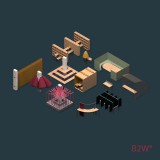Supervisor:
2021
The office is a very interesting architectural typology which encompasses a seemingly large number of considerations including social, political, financial, ecological, and, of course, technological. The spatial systems that prevailed in office buildings throughout the last century were the open-plan office and the corridor office. However, both spatial arrangements had several drawbacks. The landscape office was then created in order to mitigate these disadvantages. Thus, a system based on the open plan layout was implemented but the difference was that light and low partitions ensured minimum privacy of the employees.
However, notions such as comfort and well-being had no place in the office until only recent years. Apparently in the workplace of the future, interaction, creative knowledge and collective designs seem to dominate. The static office is transformed into a sort of "community" and part of a city. The modern era is characterized by using new technologies and, consequently, the speed of adaptation to continuous developments includes workplaces. For this to take place, spatial arrangements must be able to move, adapt and operate based on the requirements of these new conditions.
Considering all the above, our proposal focuses on the design of flexible office structures that are placed in empty artisan buildings in the center of Thessaloniki. Artisan buildings with open spaces and a smaller number of building constraints, are often converted into office spaces. More specifically, through our study, we tried to point out the demands when converting this specific type of buildings into office environments. Such are for example the necessity for thermal comfort and sound insulation, the need for privacy or interaction. In addition, our design focused on the human factor and human experience, which are constant, despite the rapid developments and new data of our time.



